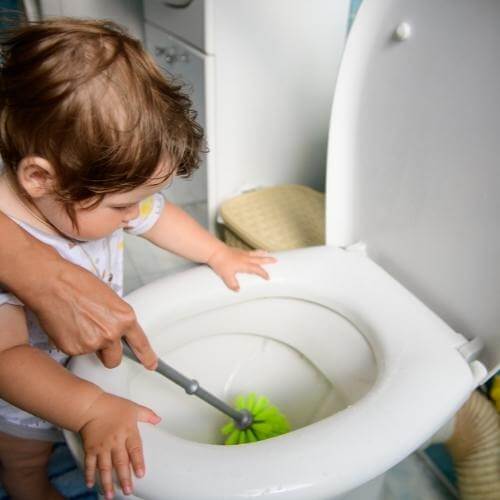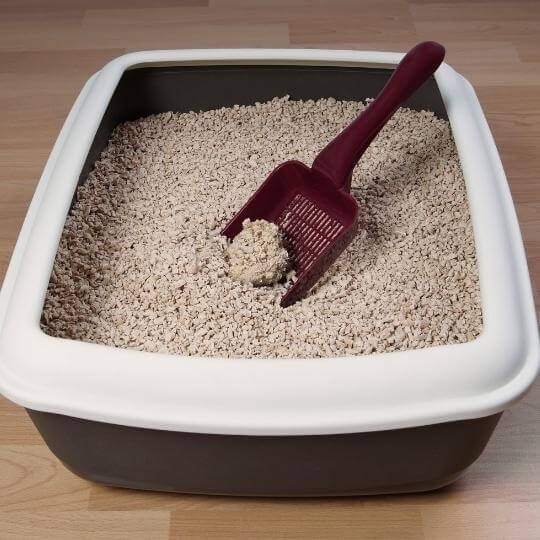The health of our septic tank can dictate the health of our entire household. With the importance of sewer systems within each home, it’s good to know how to clean and maintain septic tanks without much expense. That’s why today we will answer: Is toilet duck safe for septic tanks?
Is toilet duck safe for septic tanks?

Septic tanks are a very useful tool in getting rid of waste in a very simple but effective way. However, they can be damaged by some cleaning products we frequently use.
There are a few key things we should keep in mind when using cleaning products in our septic tanks. The first concern is polluting the water in the septic tank. No matter what goes on, it’s good to keep the water within the septic tank unpolluted.
Polluted water in a septic tank can lead to very big and real problems that will take effort to get rid of. Additionally, it will create new issues, thus forming an annoying chain of events that must be handled. [1]
The second thing to keep in mind is whether it harms the environment. The cleaning product may work perfectly without polluting water, but if it causes problems to the environment and the ground within which the septic tank lies, it’s a bad cleaning product. The ground should be kept as safe as the septic tank itself, which is why this concern even exists.
So let’s get down to it. Is the toilet duck safe for your septic tank? The answer is yes. Toilet Duck fulfills both of the important factors mentioned above by not polluting the water or harming the ground.
It’s a simple product that does a good job of cleaning out septic tanks. However, it would be best if you still exercise caution. Using too much toilet duck could be harmful, but it’s okay to use it in smaller doses.
Septic tank rules

The overall regulations and rules for septic tanks are consistently updated. This is done for the sake of maintaining high standards of waste management.[2]
When the tank connects to a watercourse
The newer rules dictate that your tank connecting to a watercourse needs to have some extra expunging functions. These functions will heavily depend on your possibilities and choices but one of the following has to be fulfilled.
One of the choices is to connect to the main sewer. This may act as the simplest way of fulfilling this regulation.
Instead of doing so, we can install a drainage field. Also known as a leach field, it’s a system that allows us to deplete the septic tank and dispose of partially treated water throughout the soil. Even if you get into problems with it, you can consult resources to help you.
Specifications of the septic tank
Septic tanks have to fulfill certain qualifications to be up to regulations. Not just any septic tank will conform to regulations that are in effect, so it’s good to know some things that should always be considered.
These septic tanks have to be occasionally maintained too. The maintenance has to be conducted at least once a year. Keep in mind that maintenance has to be properly conducted. The way to conduct proper maintenance includes following the specifications of the manufacturer too.
Your septic tank has to be installed with the proper following of the manufacturer’s guidelines. A badly installed septic tank can cause further problems both within our household and in the overall sewer system.
The first thing to consider is that a septic tank has to have a certain capacity. Anything less than the allowed capacity counts as breaking the rules of the implemented regulations. This may vary depending on your area, but it’s the first step toward deducing the correct sizing. [3]
After making sure regulations are adhered to, we should also get educated on the dos and don’ts of septic tanks. Specifically, learning what can be put inside of a septic tank without it running into problems.
Keep in mind that this also includes items that are flushed or forwarded to the septic tank in some other manner.
List of things not to put in septic tank

There are plenty more things we should not place in our septic tank. In fact, the number of things that should enter it outside of waste is surprisingly narrow.
Most cleaning products
When cleaning around the place, it’s very easy to get tired. In this exhaustion, we could resort to using the toilet bowl as a secondary garbage bin.
This won’t do. A lot of the items used during cleaning can be rather harmful to the septic tank in a variety of ways. Some examples of things you shouldn’t flush do include drain cleaners, paper towels, and wet wipes.
Drain cleaners are frequent subjects in this area. Unfortunately, a number of people ignore their potential harmfulness when improperly handled, leading to damage throughout the system. Drain cleaners can especially be harmful if left in the pipes for too long because they will end up damaging them. A similar situation occurs with septic tanks too, so keep that in mind.
Paper towels and wet wipes have a mutual problem and reason why we should prevent them from reaching our septic tank. They can get in the pipes and clog them up severely. Furthermore, this can lead to entry into a septic tank getting blocked and obstructing its functionality. [4]
Avoid any types of oil and grease
There is a constant concern about our septic tank’s health and oils and grease will consistently challenge that concern. The goal of septic tanks is to properly dispose of the waste and allow it to break down over time. This works great with standard waste, but injecting other materials into it can lead to bad functionality.
Oils and grease will frequently accumulate throughout the waste and resist the breakdown process of the septic tank. These two can further lead to excess accumulations throughout the pipes and produce dangerous clogs.
Oils don’t include just cooking oil. Motor oil or any type of oil cosmetic products can easily produce these problems. Despite a lot of people doing it, it’s best to avoid flushing any of these items. Flushing them once or twice may not cause any problems but consistently doing so surely will.
Hygiene products
Most if not all people use various hygiene products within their bathrooms. Unfortunately, many of them end up tossing them into the toilet. This would be yet another mistake that could lead to septic tank problems.
There are a few common items that are most commonly disposed of in this manner. These being q tips and dental floss. These items have a tough time degrading within the septic tank, which leads to them simply sticking around and accumulating.
They aren’t biodegradable, so it figures that such a problem would occur. The lack of biodegradability will often be the connecting factor between the items you should never flush.
Cat litter and baby diapers
If we have a cat or a child at home, their waste becomes our problem. However, while adult waste can be simply flushed, these little guys won’t.
Cat litter is usually best disposed of by throwing it in the trash. Despite how it may look, it has an awful time breaking down in the septic tank. Although the septic tank will degrade most of the accidents your little friend made, the actual litter will stick around.
Babies aren’t any different. The baby diapers are very good at one thing, clogging our pipes. That should be enough to deter you from flushing diapers but it’s also not all. The diapers, especially those of the disposable kind, are not biodegradable. That means they’ll stick around in our septic tank for a long time.
Is toilet duck safe for septic tanks?
As mentioned before, yes it is safe. The overuse of it may lead to our pipes becoming more susceptible to harm, but the base usage we’ll run into with this cleaning product won’t pose any issues. This is a common stipulation for some other products too.
There are no materials that will stick inside of our pipes or clog the overall flow present in toilet duck, which is why its utility as a cleaning product is so potent.
Conclusion
With all of that information, you should have a septic tank that’s installed according to the regulations. On top of that, knowing what to allow into your septic tank and what not to allow can be a game-changer in terms of your septic tanks longevity. Don’t forget to exercise caution whenever possible in order to reduce accidental flushing of harmful substances.
As we’ve seen, you’ll also be able to use a toilet duck for simple cleaning of the various parts of your sewer systems without having to worry about how it will affect your septic tank. It conforms to the prerequisites that are laid out for the septic tank, but we should still be careful not to use too much. Overboard usage could still cause problems, so moderation is key.

Michael Davis is a heating & plumbing expert who currently works as independent contractor in SC. He also writes for Plumbertip.
For almost 10 years he worked on various plumbing tasks across South Carolina.



